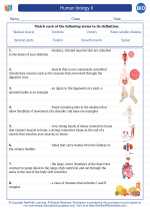The Year in Biology
In biology, the concept of a "year" is often related to the cyclical patterns of natural phenomena, such as seasonal changes, reproductive cycles, and population dynamics. Understanding the concept of a year is essential for comprehending various biological processes and ecological interactions.
Defining a Year
A year, in biological terms, refers to the time it takes for a complete cycle of seasonal changes to occur. This cycle is typically based on the Earth's orbit around the sun and is characterized by variations in temperature, day length, and other environmental factors. The duration of a year can vary depending on the specific biological context and the region of the world.
Seasonal Adaptations
Many organisms have evolved specific adaptations to cope with the changing seasons within a year. For example, hibernation, migration, and changes in reproductive behavior are common strategies employed by various species to survive and thrive in different seasons.
Reproductive Cycles
The concept of a year also plays a crucial role in the reproductive cycles of many organisms. For instance, the breeding seasons of animals and the flowering periods of plants are often synchronized with specific times of the year to optimize reproductive success.
Study Guide
When studying the concept of a year in biology, consider the following key points:
- Understand the astronomical basis of a year and its significance for the Earth's ecosystems.
- Explore the various seasonal adaptations exhibited by different organisms and their ecological implications.
- Examine the role of a year in regulating reproductive cycles and population dynamics within biological communities.
- Investigate the impact of human activities, such as climate change, on the annual cycles of natural systems.
By grasping the concept of a year in biology, you'll gain a deeper appreciation for the interconnectedness of living organisms with their environment and the intricate temporal rhythms that shape ecological processes.
.◂Biology Worksheets and Study Guides High School. Human biology II
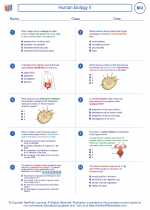
 Worksheet/Answer key
Worksheet/Answer key
 Worksheet/Answer key
Worksheet/Answer key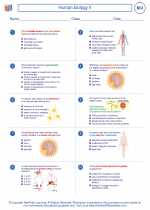
 Vocabulary/Answer key
Vocabulary/Answer key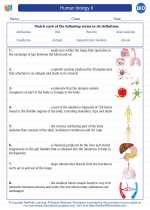
 Vocabulary/Answer key
Vocabulary/Answer key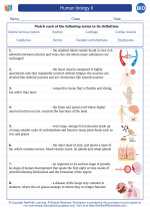
 Vocabulary/Answer key
Vocabulary/Answer key
 Vocabulary/Answer key
Vocabulary/Answer key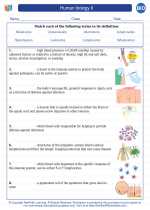
 Vocabulary/Answer key
Vocabulary/Answer key
 Vocabulary/Answer key
Vocabulary/Answer key
 Vocabulary/Answer key
Vocabulary/Answer key